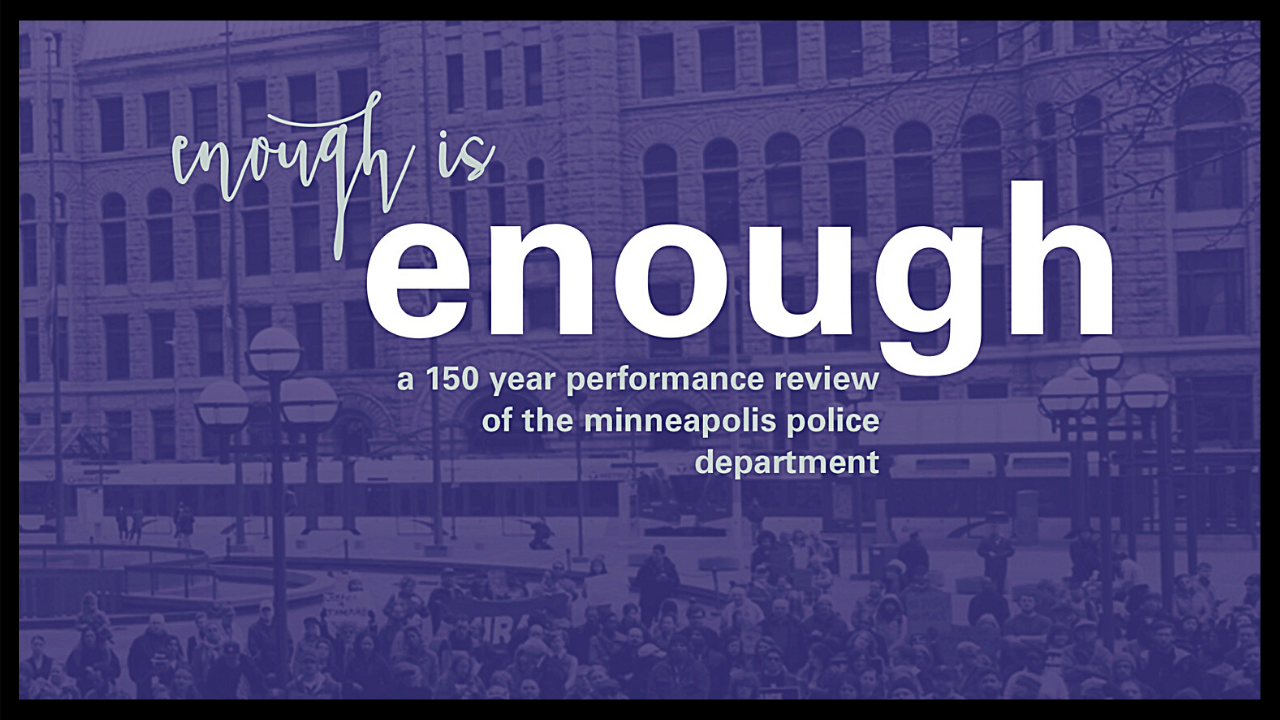MPD150 is an independent association of abolitionist activists, researchers, and artists who came together in the spring of 2016 in anticipation of the Minneapolis Police Department (MPD)’s 150th anniversary. As we thought about how best to “commemorate” that date, it became clear that an important first step toward developing an abolitionist lens is understanding that police are not some eternal, inevitable feature of human existence, that they have a specific history, one that isn’t even very old.
To that end, the initial, 2017 edition of our report, “Enough Is Enough,” contained a “Past” section (a history and performance review of MPD), a “Present” section (interviews with community members about their interactions with police), and a “Future” section (an exploration of police-free methods of dealing with harm, plus some suggestions for policy and investment at the local government level).
We were in the middle of working on an expanded version of the report when Minneapolis police murdered George Floyd. The subsequent uprising recontextualized our work. As we share that expanded version here at The Forge, we hope that it will be helpful to organizers doing the work in other places.
Here in Minneapolis, organizations like Black Visions and Reclaim the Block are deeply engaged in the nuts and bolts of policy while MPD150 has intentionally focused on narrative-shifting work. The expanded “toolkit” edition of our report [linked to here and below] contains the full original history, along with printable handouts, zines, educator tools and discussion questions, an oral history of the project, poetry and visual art, and an entire comic book section called “Community Policing and Other Fairy Tales.”
As much as our primary focus is sharing resources with our neighbors and allies here in Minneapolis, we also hope that the specificity of this report, its highlighting of local voices and its deep dive into what abolition might look like “on the ground” can be an asset to organizers in other cities. Even if your own city’s history or present situation differs from ours, there are likely lessons, project ideas, or even concrete materials to pull from this report; we also hope activists in other cities will share the lessons and challenges they have faced.
A final note: the “Enough Is Enough” report and toolkit is free, and that goes for both the online version and physical copies (apart from shipping costs). Whether you’re an individual activist, a representative of an organization, a teacher, a radical librarian or bookstore worker, or just someone organizing an abolitionist book club, we’d love to get them in your hands. Find information on ordering copies here.
-The MPD150 Collective

